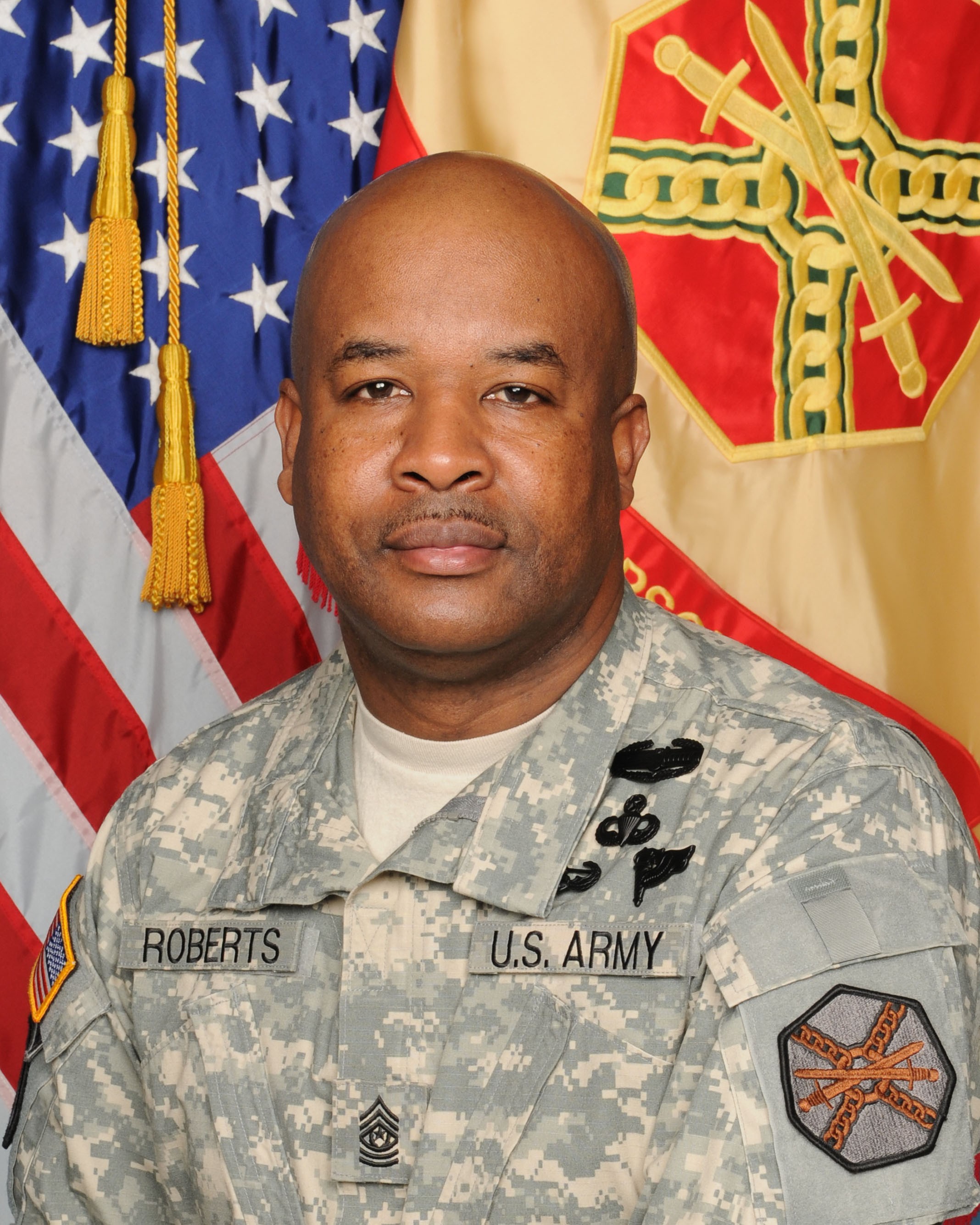CSMAca,!E+Corner
Garrison Command Sergeant Major
Fort McPherson and Fort Gillem
As America's fighting men and women, we should always strive to become better Soldiers.
For enlisted troops, this means becoming proficient in our warrior tasks and drills and maintaining the highest levels of competency in our respective military occupational specialties.
Additionally, with the current operational tempo, the intangible skills of leadership and resiliency are also vital to each and every enlisted Soldier.
For future and current NCOs, DA Pamphlet 600-25 (U.S. Army Noncommissioned Officer Professional Development Guide) champions the idea of the "NCO Pentathlete."
An NCO pentathlete "is an innovative, competent, professional enlisted leader who is grounded in heritage, values and traditions that embody the Warrior Ethos; champions continuous learning and is capable of leading, training and motivating Soldiers; is an adaptive leader who is proficient in joint and combined expeditionary warfare and continuous, simultaneous, full spectrum operations; is resilient to uncertain and ambiguous environments."
While this may seem like a daunting standard, the truth is that the Army has a system in place to help every Soldier achieve the pentathlete goal.
It starts at the junior enlisted level, where good habits and professionalism are formed.
Through the Warrior Leader Course, lessons learned from real-world experiences put Soldiers on the path to become adaptive, solution-oriented NCOs who are fully capable of serving as the "backbone of the Army."
For sergeants and staff sergeants, the Basic Noncommissioned Officer Course teaches theories and principles of battle-focused, common core training, leadership and warfighting skills required to lead squad-sized elements in combat, as well as "hands-on," performance-oriented, technical training that is specific to a Soldier's MOS.
For senior-level NCOs, the Advanced Noncommissioned Officer Course prepares NCOs to assume duties and responsibilities needed to lead a platoon-sized element, while the Sergeants Major Course (SMC) prepares selected master sergeants to perform duties of a sergeant major and command sergeant major in staff and troop assignments.
The SMC is the pinnacle of NCO education system and trains senior NCOs in full spectrum operations, contemporary operational environments, and joint interagency, intergovernmental and multinational environments.
Additionally, functional schools, such as drill sergeant, recruiter and attachAfA training, are available for Soldiers to expand their knowledge base, while courses, including the Battle Staff Course and First Sergeants' Course, provide specific skills required for duties in operations and leadership areas of responsibility.
Through it all, warrior training helps Soldiers maintain proficiency in the performance of warrior tasks and battle drills.
Proficiency in WTBD is enhanced through the execution of tasks in the categories of shooting, moving, battle drills, communicating and first aid, in addition to chemical, biological, radiological and nuclear response.
All Soldiers must be ready to fight and complete the mission by applying the skills learned through the fundamentals of WTBD.
Operational assignments can prepare Soldiers to lead their fellow troops in combat through a variety of challenging assignments based on a Soldier's MOS and additional skills.
Special duty assignments can present a unique challenge and opportunity for leader development as Soldiers often perform duties outside their primary MOS.
Last but not least, are mentorship and self development.
Mentorship is the process through which senior Soldiers pass along knowledge, standards and lessons to the next generation of Soldiers.
It is a vital part of the tradition and development of our Army.
Self-development is a planned, progressive and sequential program followed by NCOs and comprised of individual study, education, research and professional reading.
Self-development also includes practice and self-assessment and should complement and expand on advancements and accomplishments gained during institutional training and operational assignments.
Self-development is a personal responsibility and focuses on maximizing leader strengths, minimizing weaknesses and achieving individual leader development goals.
Soldiers should have no doubts of the Army's intent for them to succeed and should take every advantage of the system set in place for them to do so. We all have the responsibility and opportunity to explore the Army's professional development system to become the best pentathletes we can.
I encourage all Soldiers to explore and find ways to improve themselves and the troops they lead. Only by improving ourselves can we improve our entire force.
My door - and the doors of all the leaders of the U.S. Army Garrison - remains open to help any Soldier meet his or her professional goals. Hooah!


Social Sharing